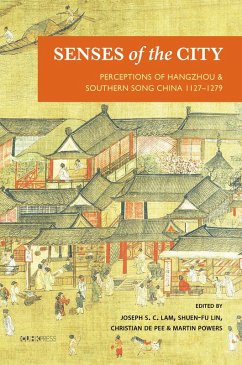From its first designation as temporary capital in 1138, the city of Hangzhou (then called Lin'an) was deemed representative of the diminished empire of the Song (960-1279), in all its contradictory aspects. The exquisite beauty of the city confirmed its destiny to become an imperial residence, but it also portended its fatal corruption. The wealth and ease of Hangzhou epitomized the vigor of the southern empire as well as its oblivious decadence. The city was paramount and feeble, aweinspiring and threatened, the most admired city in the civilized world and a disgrace to the dynastic founders. Rather than perpetuating the debate about the merit of these polemical judgments, the contributors of Senses of the City treat them as expressions of their historical moment, revealing of ideological conviction or aesthetic preference, rather than of historical truth. By reading the sources as expressions of individual experience and political conviction, the contributors defy the impassioned rhetoric of past generations in order to recover the solid ground of historical evidence. Leading scholars of the field, including Beverly Bossler, Stephen West, and Martin Powers have produced essays that relate changes in literary convention to shifts in territorial boundaries, and analyze writing, painting, dance, and music as means by which individual literati placed themselves in time and space. The contributors reestablish the historical connections between writing and meaningful action, between text and world, between the sources and their own words, and between the page and the senses. Their efforts to retrieve the sounds, sights, and smells of Hangzhou from Southern Song texts replicate, in reverse direction, the attempts of twelfth and thirteenthcentury authors to devise effective tropes and suitable genres that would preserve their living impressions of the city in writing.
Dieser Download kann aus rechtlichen Gründen nur mit Rechnungsadresse in A, B, BG, CY, CZ, D, DK, EW, E, FIN, F, GR, HR, H, IRL, I, LT, L, LR, M, NL, PL, P, R, S, SLO, SK ausgeliefert werden.








![Dash Diet Cookbook for Beginners: Low-Sodium Recipes to Nourish Your Body and Delight Your Senses [III EDITION] (eBook, ePUB) Dash Diet Cookbook for Beginners: Low-Sodium Recipes to Nourish Your Body and Delight Your Senses [III EDITION] (eBook, ePUB)](https://bilder.buecher.de/produkte/64/64356/64356900m.jpg)
